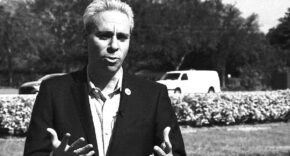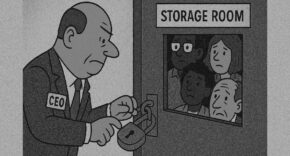A Rebellion of the Educated Elite
When Palantir CEO Alex Karp took aim at Ivy League graduates for supporting New York City’s new socialist mayor, Zohran Mamdani, his words struck a nerve. “I think the average Ivy League grad voting for this mayor is highly annoyed that their education is not that valuable,” Karp said during an interview with The Axios Show. “And the person down the street who knows how to drill for oil and gas, who’s moved to Texas, has a more valuable profession. And I think that annoys the f— out of these people.”
Karp’s frustration captures a deeper question: why do so many of America’s most privileged young people, armed with elite degrees and expensive educations, now rally behind a self-described socialist?
The Allure of Mamdani’s Message
At just 34, Zohran Mamdani has become a symbol of youthful rebellion against the establishment. His campaign promised fare-free public buses, rent freezes, universal childcare, and higher taxes on the wealthy. To his supporters, these ideas weren’t radical; they were fair. NYU student Ebtesham Ahmed described Mamdani as “a candidate speaking to the economic interests of the working-class New Yorkers.” Students like Wei Zhou and Rosa Morel echoed similar sentiments, saying that Mamdani’s empathy and inclusivity made him seem like “a candidate who truly listens.”
But beneath the enthusiasm lies something deeper: a generation of educated young people who feel that the system promised them success, yet left them behind.
When Education Loses Its Value
Alex Karp’s jab at Ivy League graduates highlights a growing insecurity among the educated elite. For decades, a degree from an elite university guaranteed social status and financial stability. Today, it often guarantees debt and uncertainty. Many graduates discover that their expensive education offers limited practical skills in a world that rewards technical expertise and entrepreneurship.
As Karp pointed out, those with tangible skills — from engineering to energy work — have found security and respect, while liberal arts and social science graduates often struggle to translate their education into opportunity. The result is resentment: a sense that their cultural sophistication and political ideals are ignored by a system that prizes economic output over intellect.
Downward Mobility and the New Socialists
Sociologist Musa al-Gharbi calls these frustrated young people “the downwardly mobile elite.” They grew up believing they were destined for success — the children of professors, artists, and professionals — yet they now face unstable careers, unaffordable housing, and fading prospects. His research suggests that this decline fuels radicalism among the privileged, a rebellion against the very system that once seemed built for them.
Rob Henderson of The Times noted that for many young people, socialism offers a simple, emotionally satisfying answer: take from the rich, help the poor, and restore fairness. “The more equal a society becomes, the more acutely aware people become of any remaining inequalities,” he wrote, describing this as the Tocqueville Paradox. The closer people get to equality, the more intolerable small differences feel.
The Generational Gap in Understanding Socialism
Older Americans associate socialism with the failures of the Soviet Union and the Cold War. Younger generations, by contrast, were never taught those lessons. As Henderson observed, “In US high schools we get 155 hours on Hitler, three minutes on Stalin, zero on Mao and zero on Pol Pot.” For them, socialism is not tyranny — it is fairness, justice, and compassion.
Surveys confirm this shift: 62 percent of Americans aged 18 to 29 now view socialism favorably, and 40 percent even agree that “violence against the rich can be justified.” These aren’t fringe sentiments anymore; they are mainstream among the educated youth in major cities like New York.
Mamdani as a Mirror of His Followers
Zohran Mamdani himself embodies the paradox of the privileged socialist. Raised in an academic and artistic household, educated at elite private schools, and connected to cultural elites, he once joked that “nepotism and hard work goes a long way.” Yet his own struggle to find meaningful employment before entering politics mirrors the frustration of many of his followers.
He speaks their language: a mix of progressive compassion and economic resentment. His campaign thrives on social media, offering hope to young people who feel economically trapped yet morally righteous. They may come from comfort, but they yearn for purpose — and Mamdani gives them that.
Searching for Meaning in a Prosperous Age
Today’s young New Yorkers live in a time of abundance — cheap flights, instant delivery, limitless entertainment — yet they struggle with rent, job security, and a sense of identity. Their grandparents built lives from hard work and stability. They, despite all their education, cannot even afford an apartment. In that gap between comfort and purpose, socialism has found fertile ground.
Alex Karp’s criticism cuts to the heart of this tension. Ivy League degrees no longer guarantee success. Many of those who hold them now look to people like Mamdani not just for policy, but for meaning. They are not revolutionaries in the traditional sense. They are the disappointed heirs of privilege, searching for justice in a world that no longer seems to value what they were taught to become.





